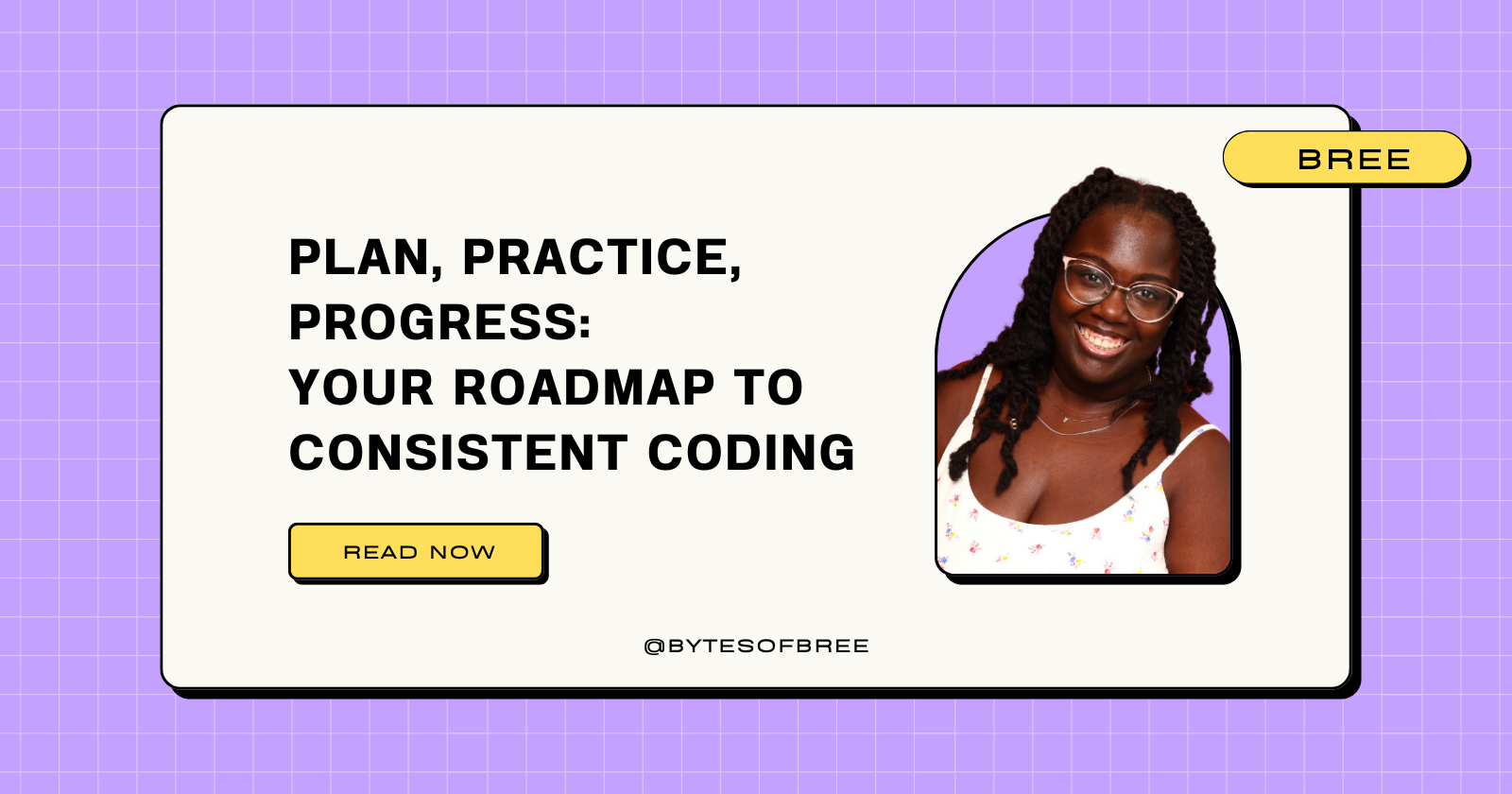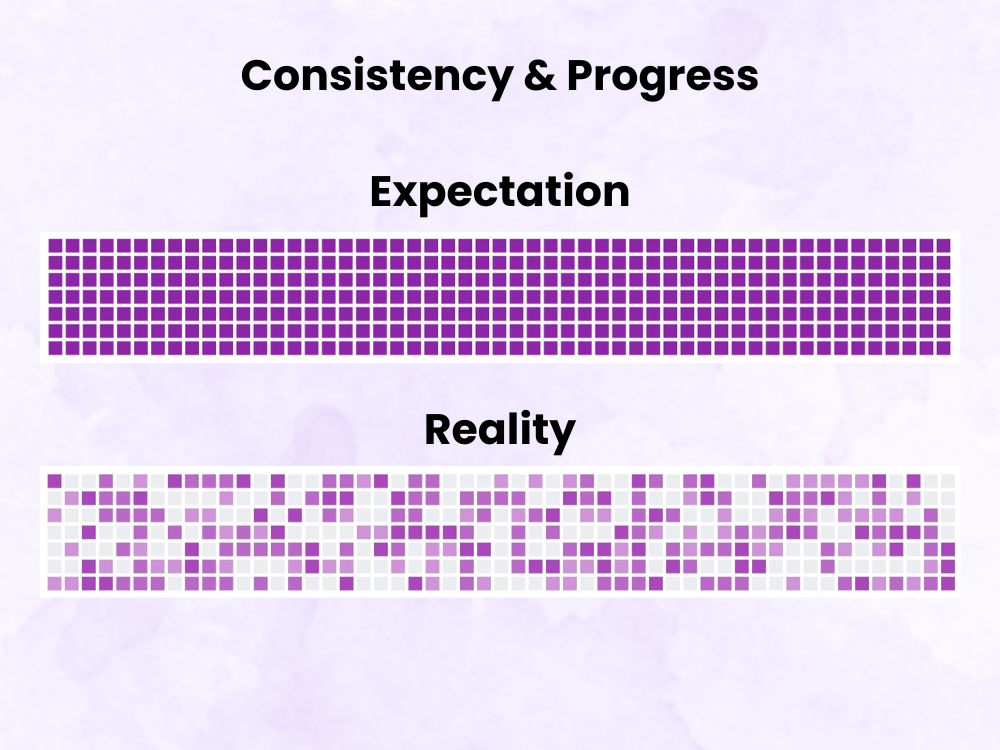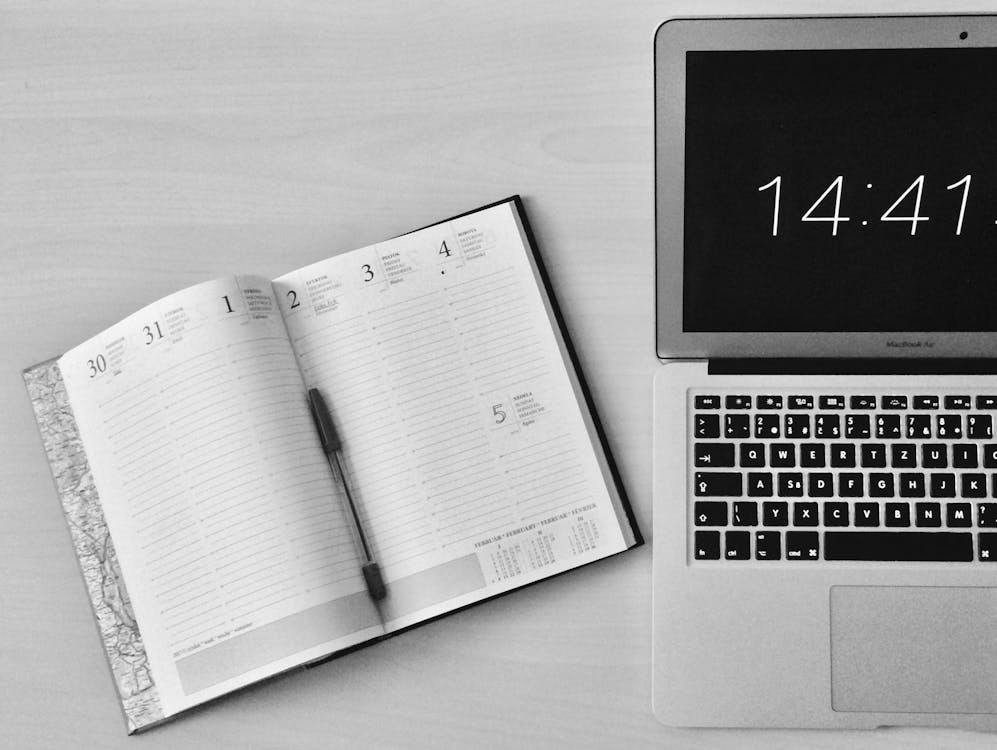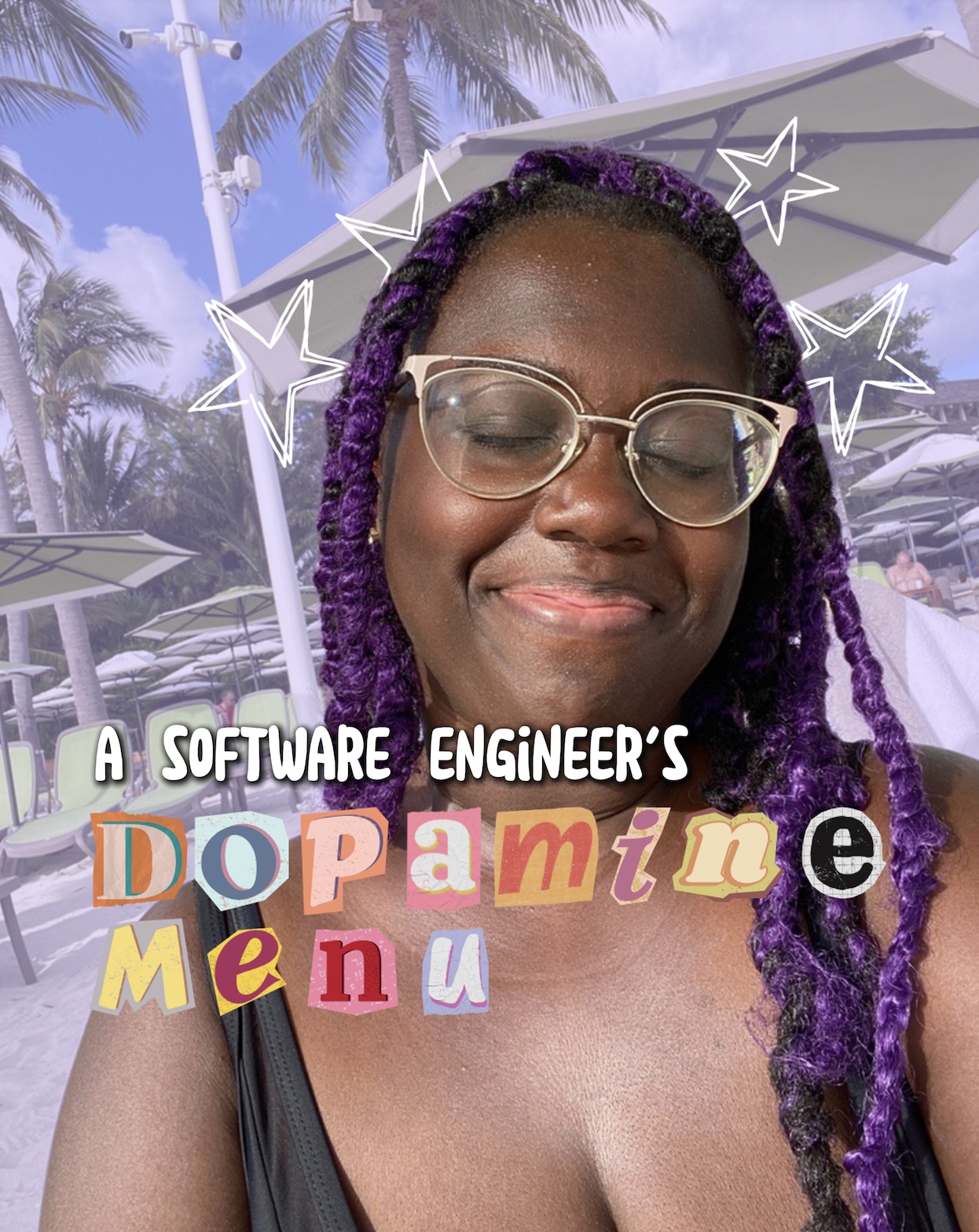Plan, Practice, Progress: Your Roadmap to Consistent Coding
 Bree Hall
Bree Hall
How many times have you started "learning how to code"? It's ok, you can be honest!
You want to learn to code at the prospect of a new career, a better income, increased flexibility, or another perk. That excitement fuels your endless research into in-demand programming languages and roles you could picture yourself in. You've gathered learning resources and prepared for the journey ahead. And then, in no time...you're learning to code!
There's a learning curve, but you welcome the challenge. You push through with a smile because the goal is within sight. But as concepts get tougher, projects more daunting, and life starts interfering, the reward for your hard work begins to feel distant. You might find less time to study or struggle with complex topics, leading to shorter or skipped study sessions. Your desire to become a software engineer hasn’t changed, but the initial motivation isn’t what it once was.
This is a cycle many developers know well. Excitement and motivation will come and go. Discipline is what keeps you going through challenging moments when you can’t see the finish line, but trust your effort will pay off. Building discipline doesn’t happen overnight, but it’s essential for achieving the progress you’re aiming for.
Welcome to your roadmap for consistent coding! Your version of consistent coding might not look like someone else’s—and that’s okay. Every developer's journey is unique. This framework will help you build sustainable coding habits that fit your life. We'll walk through creating your study plan, maintaining concentration, and tracking your progress.

It’s All About the Plan
Consistency starts with creating a plan and sticking to it. If you're anything like me, you may have created a "plan" to code for at least one hour every single day. It was easy to tell myself I would find the time to do it without assessing my schedule. This led to missed study sessions when different life factors arose, making it harder to get back on track. Creating a plan only helps if it fits your life and working style.
Creating consistency is a process, and understanding what it looks like for you means taking an honest assessment of a few factors. I recommend creating a weekly plan that's revisited regularly where I can answer the questions:
What are my biggest obligations this week?
How much time per day can I commit to coding?
What do I plan to accomplish this week? (Finishing a course, completing a feature on a project, passing a practice test for a certification)
How am I feeling? Do I feel like I may be feeling signs of burnout?
Mapping out your priorities and commitments for the week will give you a clear picture of the time you can dedicate to coding. You may not have hours to spend each day, but there are ways to get creative with time. This may include studying on a lunch break or your daily commute.
❌ Instead of:
I'm going to code for one hour every single day
✅ Try:
Monday - Wednesday: 6:00 - 9:00 PM
Thursday: 12:00 - 1:00 PM (Lunch break)
Friday: Rest
Saturday - Sunday: 12:00 - 4:00 PM
Creating a schedule of time dedicated to uninterrupted coding removes the guesswork from your routine and makes it easier to stay committed. This helps you prioritize coding as part of your weekly structure rather than an afterthought. By setting realistic and flexible time blocks, you’re not just making a plan—you’re setting yourself up for sustainable, long-term progress while allowing room for life’s unexpected moments.
Make It A Date
After creating your weekly schedule, take it one step further by making it official. Using your favorite calendar application, add your study blocks to the calendar. Even if your coding time for the day is 30 minutes, lock that time in! Adding study time to your calendar reinforces its importance in your routine. With a reminder prompting you to honor your commitment, you'll find it easier to decide to work toward your goals and stay consistent.

Be Intentional About What You’re Going to Work On
With your schedule set and locked into your calendar, it's time to plan your session. Don’t wait until your coding session begins to decide what you’ll work on, as analysis paralysis can steal valuable time. Having a set structure and plan allows you to start your study session knowing your goals and takeaways.
Use your favorite calendar or to-do list app to plan your sessions. I love planning in Notion, but recently, I've enjoyed the simplicity of Google Calendar. I create events for my study sessions and use tasks to list out everything I want to achieve during that time, such as watching tutorials, practicing LeetCode, or working on projects. This practice helps you develop the habit of breaking problems down into the smallest, manageable pieces to tackle.
When planning your tasks, be sure to leave some flexibility. This helps prevent a backlog of unfinished tasks from piling up between sessions. For example, when creating tasks for video tutorials, I limit myself to 30 minutes of video time per hour. This allows time to take notes, code along, and rewatch portions if needed.
Add Pockets of Joy to Coding Sessions
Learning a new skill and reaching your goals doesn’t have to be boring! Make your coding sessions something you look forward to. Treat yourself to a special drink or snack when you code, or create a playlist that helps you focus. Adding small joys to your study sessions can make them feel less like a chore and more like a highlight of your day.
I recently discovered the concept of a dopamine menu. This approach involves planning activities that boost dopamine throughout the day to stay motivated and engaged. By categorizing activities based on time commitment, you can sprinkle them throughout your day for consistent enjoyment. Creating my own dopamine menu has reminded me to take breaks during long work sessions, which is crucial when tackling mentally demanding tasks like learning to code. If you want to learn more about dopamine menus and how to create your own, check out this article from ADDitude or see mine on TikTok.
Focus Focus Focus
Distractions are everywhere—our phones, social media, and surroundings all compete for our attention. While it’s impossible to remove every distraction, there are some you can control. For example, if you have an iPhone, create custom focus modes for your coding time. This minimizes noise from social media notifications and emails, while still allowing specific contacts to reach you if needed. If you need an extra push, try using the Screen Time feature to block distracting apps during your sessions. And if you’re tempted to reach for your phone, placing it across the room—or even in another room—can make a big difference. You deserve uninterrupted coding time!
Other factors that can be distracting are the room’s lighting and noise level. Choose a quiet space or use noise-canceling headphones to minimize interruptions. Soft lighting can also help reduce glare and create a comfortable, focused environment. By creating a distraction-free space, you can stay fully immersed in your coding, making your study time more productive and enjoyable.
Journal Your Progress
If you're not documenting what you're learning on your journey, it can be easy to forget how far you've come. I recommend journaling or documenting your progress weekly or biweekly. Your journal doesn’t need to be physical—digital options like your phone’s Notes app, an audio journal, or even a GitHub README diary work just as well.
Here are some ideas for your journal entries:
Summaries of what you've learned
Things you hope to learn
Milestones and personal wins
Feedback or advice you've received and how it influenced your learning
Current questions you have
Concepts you don't quite understand
Journaling helps you track your progress and serves as a source of motivation during tough times. Reflecting on your journey will boost your confidence, remind you of how far you've come, and keep you inspired as you push forward.

Get An Accountability Buddy
Learning to code can feel lonely, but it doesn’t have to be! Finding a study and accountability buddy can make a huge difference in your coding journey. Don't just study together! Have regular pairing sessions where you teach each other parts of what you've learned can reinforce your knowledge.
I don't know about you, but simply telling someone you’ll do something adds extra pressure to follow through. Accountability can be a powerful motivator to stay on track with your coding goals. Think of it as a team effort. When you feel stuck, your buddy can provide guidance or encouragement. And when one of you reaches a milestone, you both get to share in the win.
If you’re unsure where to find a study buddy, join online coding communities or local coding meetups. Many developers are on the same journey and would welcome a partnership for mutual accountability and support. Having an accountability buddy transforms solo study time into a collaborative, enjoyable experience that keeps you committed and motivated.
Don’t Stop, Keep Going!
Consistency in learning to code isn’t just about sheer determination; it’s about creating a system that works for you and making your coding journey enjoyable and sustainable. From setting up a personalized study plan and blocking out dedicated time to journaling your progress and finding an accountability buddy, each step you take brings you closer to your goals. Remember that your version of consistent coding might look different from others, and that’s okay! It’s your journey, and what matters most is that you keep moving forward, one step at a time.
Building habits and maintaining discipline don’t happen overnight. It’s a process that requires patience, reflection, and adaptability. Celebrate your small wins, stay flexible, and don’t forget to add a little joy to your study sessions. Whether it’s a favorite drink, a curated playlist, or sharing your progress with a friend, these little things make a big difference.
Keep going! Stay committed, be kind to yourself, and trust that your hard work will pay off. Before you know it, you’ll look back and realize just how far you’ve come on your coding journey.
You've got this!

Subscribe to my newsletter
Read articles from Bree Hall directly inside your inbox. Subscribe to the newsletter, and don't miss out.
Written by

Bree Hall
Bree Hall
Hey! I’m Bree and I’m a software engineer with a love for frontend web development. I'm currently working with React to create easy-to-use and beautiful web apps. I strive to make the technology industry more accessible to aspiring developers and engineers by creating content to share the mistakes I've made and lessons I've learned along my software engineering journey so far. I look forward to sharing my journey with you!
